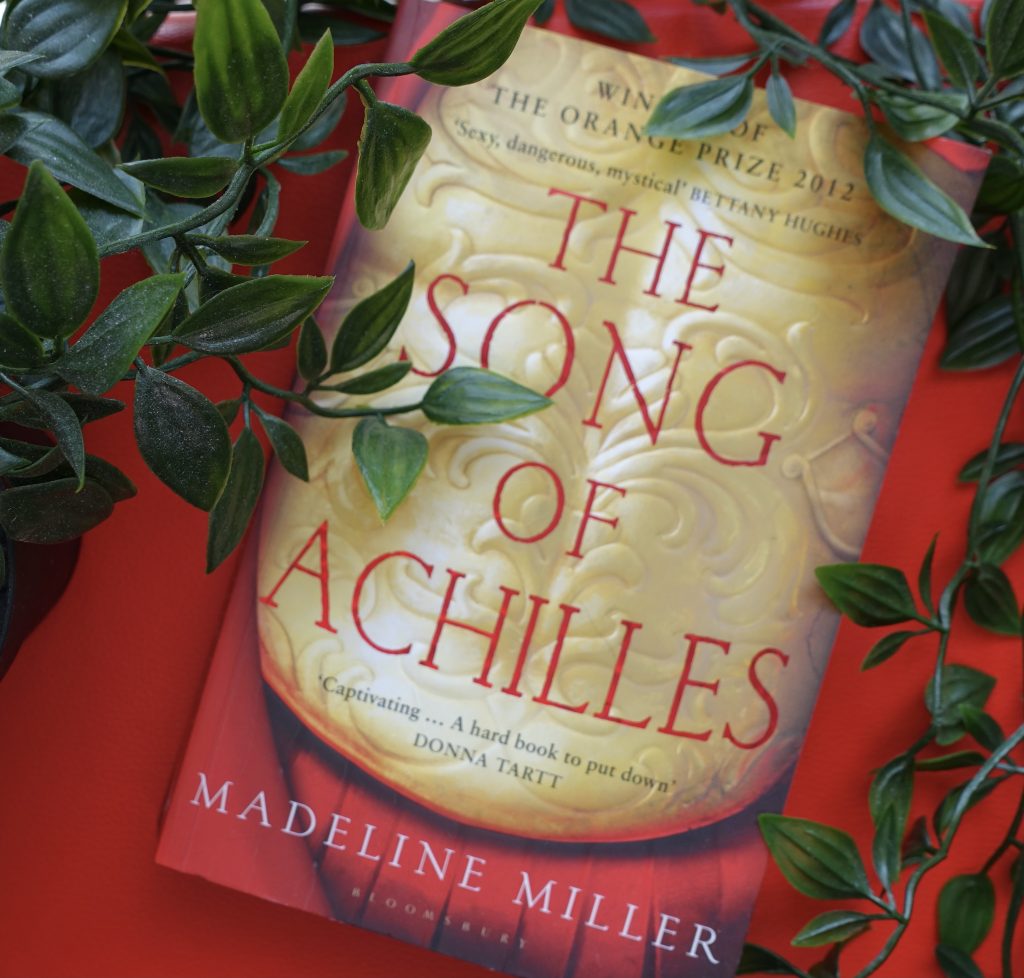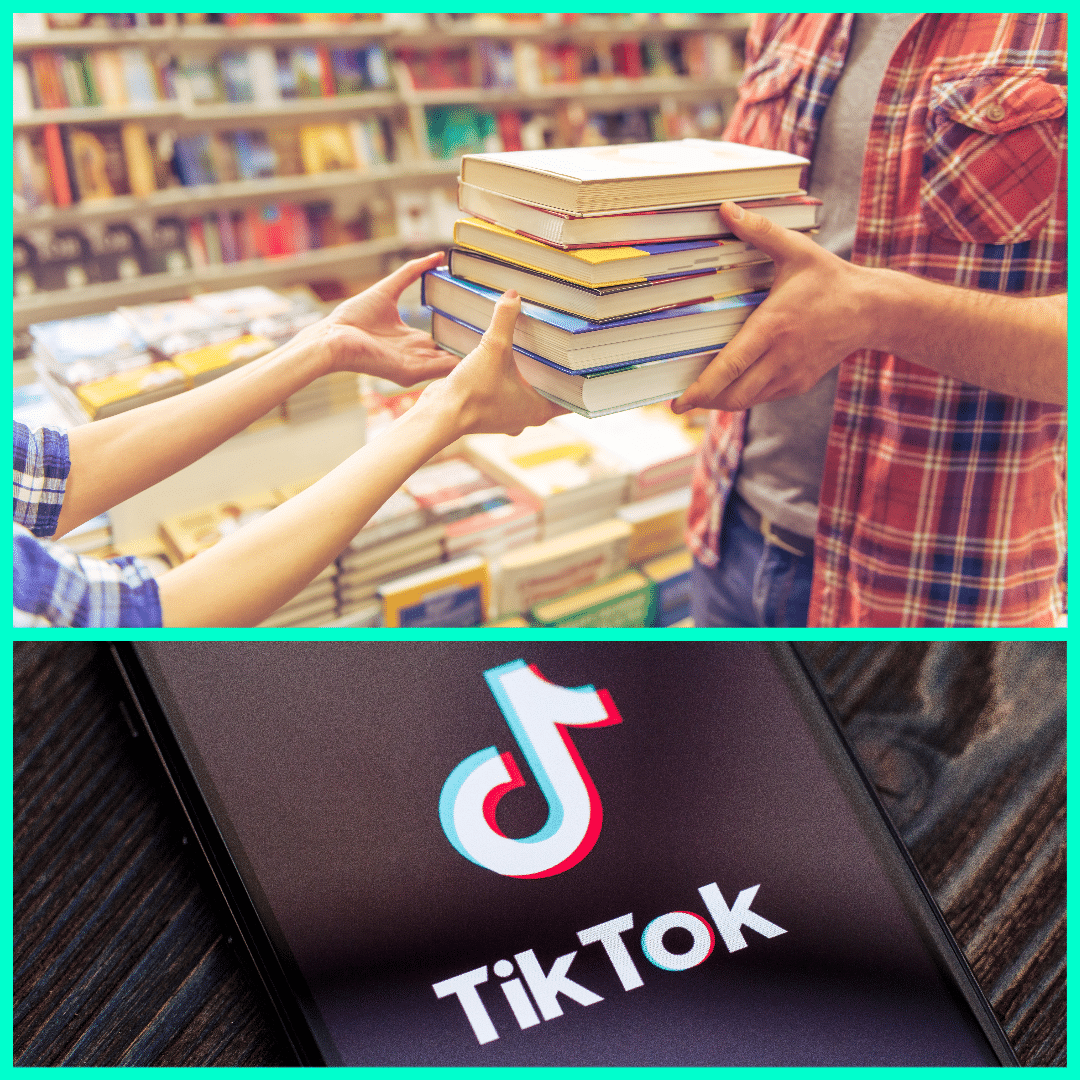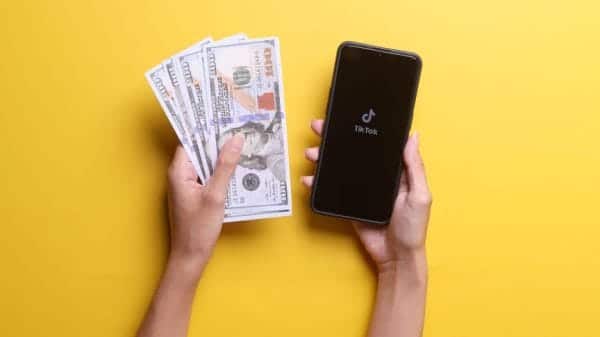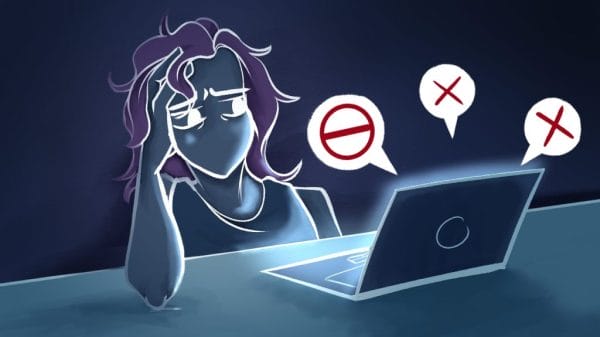TikTok, the video-creation app that has taken the world by storm, has made its mark on internet culture in many ways: from popular dance trends to niche subcultures & aesthetics, the platform has brought a plethora of new content to our screens that fit perfectly into the fast-paced lifestyle of modernity.
One of the biggest trends on TikTok – is ‘trend’ even the right word? Perhaps ‘community’ is more apt to describe this section of the platform – revolves around something that is almost anachronistic beside the young platform: Books.
Yes, I’m sure you’ve heard of BookTok, or at the very least, I’m sure you’ve seen some of the books that have been catapulted to astronomical levels of popularity thanks to being viral mainstays on the video platform.
As incongruous as it sounds – videos of books?- it turns out to be a match made in heaven, with BookTok exploding across the internet since its birth in 2020.
But how did BookTok come around, and what effect might it have on the future of the publishing industry?
BookTok: The Beginning
For me when I think of my introduction to BookTok, I think of Covid Lockdown. It’s a pretty unfortunate thing to be linked to, but due to time and circumstances, the two happen to fall quite close together on the timeline.
BookTok as a community was formed in 2020 when TikTok user @caitsbooks uploaded a video that gained popularity on the site; inspiring other users to upload their own book-related videos.
By that summer, BookTok videos were beginning to go viral across TikTok, and BookTokers began to multiply in large numbers, garnering thousands of followers on the site.
So, BookTok started out in 2020, but it wasn’t until 2021 that it arguably began to make a real impact.
With the Covid 19 Lockdowns forcing many into despised quarantine; people were looking for new ways to curb boredom, and re-discovering their love for past hobbies long lost to time constraints and failing energy levels.
That is where BookTok exploded, and certainly how I fell into it myself.
BookTok: What Is It?
BookTok, in simplest terms, is an online community on TikTok where ‘BookTokers’ share videos of their favorite books, genres, hauls, and bookcases, to their followers for recommendations and aesthetic purposes.
It features videos of short reviews or recommendations based on themes, genres, or demographics, and has arguably led to some of the biggest books we’ve seen in recent years’ success.
Books that you’ve probably seen on BookTok include Taylor Jenkins Reid’s The Seven Husbands of Evelyn Hugo, E. Lockhart’s We Were Liars, Coleen Hoover’s discography at this point, and the notorious A Court of Thorns and Roses series by fantasy author Sarah J. Maas.
BookTok doesn’t discriminate, though – you’ll find classics such as Mary Shelley’s Frankenstein or Jane Austen’s repertoire making appearances in videos too.
Whilst some books on BookTok truly deserve the recognition they’ve received (my example would have to be Madeline Miller’s The Song of Achilles, which is every bit of an emotional, beautiful and haunting read as BookTok will advise), it has raised concerns as some of the books that have been launched into the stratosphere aren’t…well…as deserving as others.
I’m not here to hate on books; to be frank, I’m just impressed that anyone can finish a story. I know I can’t. Nevertheless, we have to remember that this platform has proven to have power, and the books that go viral are seeing not just the effect on their sales (news flash: they’ve skyrocketed), but also the general attitude towards books, their content, and the conversation surrounding books.
So whilst BookTok has a lot of wonderful traits and some undeniable pros, we have to acknowledge the fact that it has some serious downfalls in varying respects.
What are the Cons of BookTok?
Whilst I’m generally of the opinion that the impact BookTok has had is overwhelmingly positive; it would be disingenuous to pretend that it is without flaws.
The first time I ever thought to myself that perhaps BookTok wasn’t as harmless as I’d believed, was when I stumbled on a video that was ‘Literature Books That Non-Literature Students Will Enjoy’ – something to that effect, anyway.
I thought to myself, as a Literature student at the time, that it would be interesting to see someone else’s perspective on this topic – I was always recommending my favorite literary works to friends that I felt were accessible, and was curious to see someone else’s picks.
Well, I was rather shocked when this BookToker recommended Virginia Woolf’s To The Lighthouse as an accessible piece of literature for the average reader.
Look, I have nothing against To The Lighthouse, but I studied it in a Modernism class, and to be frank: it was boring.
A beautiful piece of literature with some stunning prose, but not a book I’d recommend to anyone for casual reading.
It’s slow with no plot, and in my opinion, is quite high-concept in how it explores human experience and our obsession with time and relationships.
It was at this moment that I started to have my doubts about the genuineness of BookTok, and began to see slivers of intellectual snobbery in videos I once thought innocuous and helpful.
I then started to see the darker shades of this community; filled with an overwhelming love of YA Fantasy, and treating reading as an achievement of numbers rather than a pleasurable experience.
Another thing that became evident during my time scrolling through BookTok is that – it’s all the same. The same books. The same covers. Recycled video after video.
It’s almost like you must read these specific books in order to join the BookTok community; like a literary initiation into a cult of sorts.
The next issue with BookTok is one I’ve already touched on above – reading becomes a competition of numbers, a ‘how many books can you read in a week’ rather than meaningful conversations about fantastic books that you’ve mulled over and thoroughly enjoyed.
This ties in with the rise in Book Influencers, who, although I love so many of them, are unintentionally contributing to this culture of mass book-buying by posting haul videos, leading to people having unrealistic standards as to how many books they can actually read.
I don’t think that Book Influencers do this on purpose and in no way intend to make people feel this way; it’s an unfortunate side effect of social media. We view them and their lives through their videos and forget that, in a lot of cases, these videos are their jobs and they can actively devote more time to reading than the average person.
Whether that is a problem specific to BookTok or blogger/vlogger culture is just a whole other monster, though.
Despite the harsh criticisms aired above, though, BookTok has undeniably contributed positively to reading culture as well –
What are the Pros of BookTok?
The biggest pro? BookTok has re-ignited so many people’s love for reading, introducing them to books and genres they never would have found otherwise.
I’ve read some of the quintessential BookTok books, I’ll admit it, and whilst I can’t say I’m the biggest fan of A Court of Thorns and Roses, I will unashamedly admit that The Song of Achilles is hands-down one of my favorite books.

I also would never have discovered authors such as Leigh Bardugo if it wasn’t for the hype train surrounding Six of Crows either!
Despite the odd questionable recommendation on the platform, a lot of the most viral books on BookTok are genuinely fantastic, and whilst yes, they do tend to be very…samey…I think it’s a wonderful place to start out and get a feel for what you might like.
Plus, the general community – being able to discuss your love of reading, bonding over books you love, laughing about books you didn’t so much love – that’s all part of the BookTok experience too.
I think as well that BookTok will also lead to people finding their way onto BookTube – yep, YouTube has its own book-loving community too.
Personally, I’ve always been more about BookTube – maybe it’s because I’m a little older and grew up with YouTubers – but I find it a bit more accessible than BookTok.
I think BookTube appeals to me (and a lot of others) compared to BookTok because the platform offers more engaging and thought-provoking commentary on the books they recommend.
Is this due to the fact YouTube isn’t bound by the 30 second-videos of TikTok? I’d certainly say that has some impact.
BookTube videos can range from 10 minutes to an hour, and because there are no time constraints BookTubers tend to give in-depth opinions on the books they’re talking about, offering insight that isn’t so black or white – the good and the bad aspects can be discussed in tandem and the overall themes of the book more actively engaged with.
For me, this is one of the reasons I find BookTube to be more to my taste, whilst BookTok offers some great quick recommendations, BookTube will offer you a comprehensive review of the book, giving a better idea as to whether it’s right for you or not (though, BookTube has its own problems too…)
Is BookTok going to suffer the same pitfalls as BookTube, such as paid promotion, and what might this mean for the future of bookselling and the wider publishing industry?
The Future of Bookselling & the Publishing Industry
I think immediately we can all appreciate the impact BookTok has had on book sales. According to World Economic Forum, book sales in the United States rose to a whopping 821 million.
Furthermore, according to Forbes, book sales in 2021 increased by 9% to reach 825.7 million – the most sales ever recorded since NPD Bookscan started recording the figures back in 2004.
And it’s not just affecting the number of book sales, it’s also affecting how books are sold – walk into any book store and you’re almost guaranteed to find a section dedicated to TikTok books, whether it’s ‘I saw it on TikTok’ or ‘TikTok made me do it’, book stores are recognizing the power and pull TikTok has had on bookselling.
I can’t help but wonder what this will mean for the future of bookselling, and the publishing industry as a whole – are books going to have to go viral on these platforms in order to be successful?
Are we going to see a divide within the book community – those who work within the industry and gain their knowledge and recommendations from other sources, feeling a sense of prestige over those who utilize BookTok / BookTube?
Furthermore, will authors have to learn to navigate and employ social media to its highest effects in order to remain relevant – does the quality of their work become obsolete so long as they are good at marketing it through this medium?
I don’t have the answers to any of the above, but I certainly can’t wait to see the impact BookTok has on the publishing industry in the long run – it’ll be filled with highs & lows, but at least it will be thrilling to spectate.














